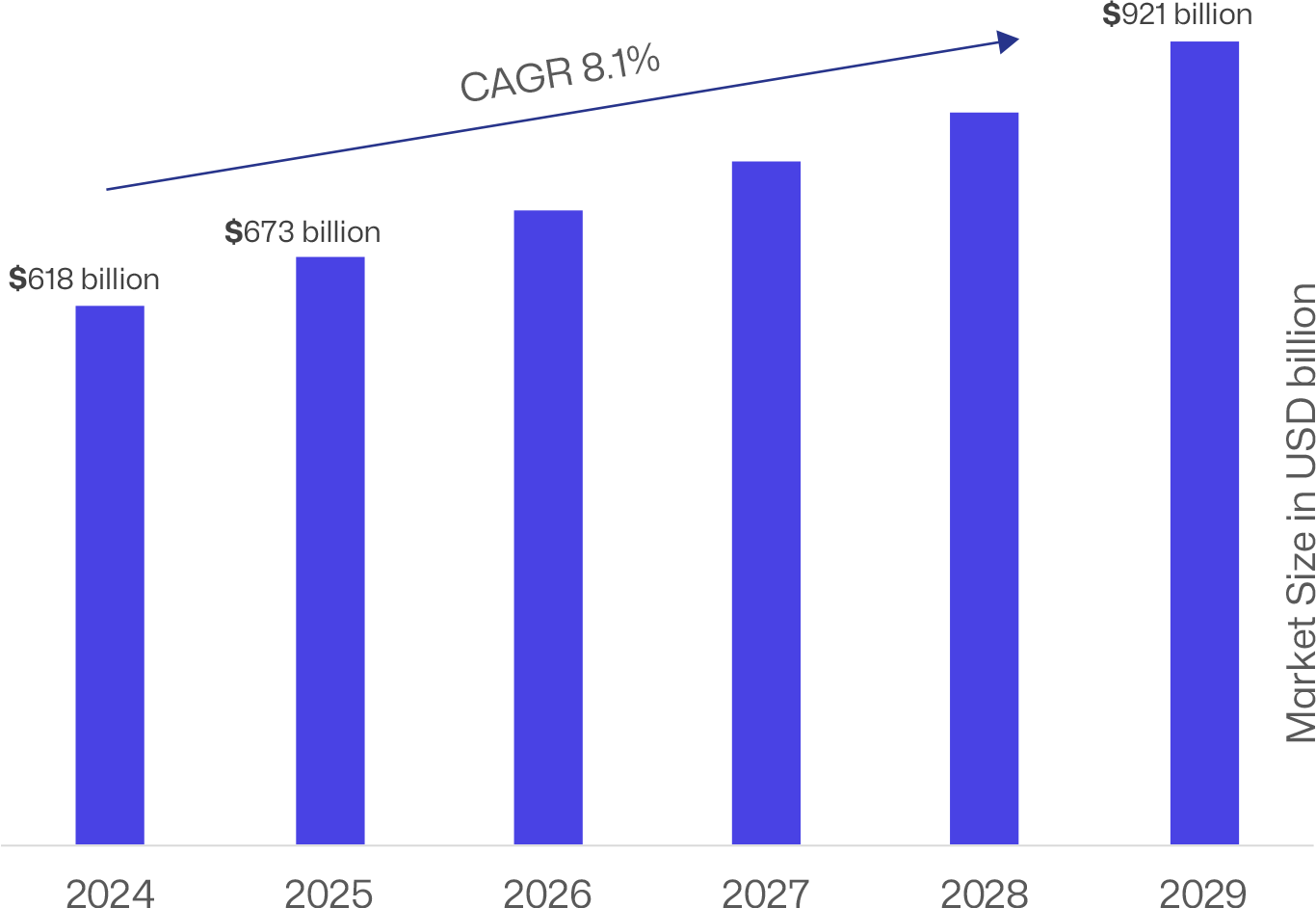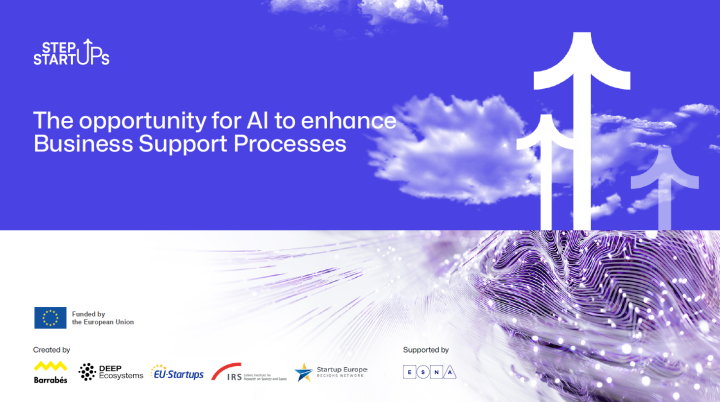Artificial Intelligence is rapidly reshaping how businesses operate—but while the spotlight often shines on core processes like manufacturing, logistics, or R&D, a quieter revolution is underway in the functions that keep companies running day-to-day. Business Support Processes (BSPs)—from HR and Finance to Customer Service—are increasingly the front line of AI adoption across Europe.
A new report, The Opportunity for AI to Enhance Business Support Processes, explores how these functions are becoming the critical entry point for companies to unlock AI’s value.
DEEP Ecosystems is proud to be a key partner in the StepUp StartUps project, a European Commission-funded initiative aimed at reshaping Europe’s startup ecosystem. Together with Barrabes, Leibniz IRS, Startup Europe Regions Network (SERN), and EU Startups, DEEP is spearheading a two-year journey to develop data-driven insights, conduct research, and organize events to inform policy transformation.
The primary objective of StepUp StartUps is to provide a comprehensive understanding of the functioning of national and local startup and scaleup ecosystems across the EU-27 and EFTA countries. This knowledge will inform the development of data-driven policy reports on key issues and challenges facing Europe’s startup ecosystem.
Why Business Support Processes Matter
BSPs provide the foundation for core business activities. They include HR, Finance & Accounting, IT, Legal, Procurement, and Customer Service. While often less visible than customer-facing or product-driven activities, they form the infrastructure on which businesses depend.
The global market for business support services is growing at 8.1% annually, driven largely by demand for AI-powered solutions. In Europe, BSPs are emerging as a natural testing ground for AI: processes are structured, risks are lower, and efficiency gains are tangible.
BSP Service – Global Market Size and Growth Rate

Adoption is Growing—But Still Uneven
Across the EU, AI adoption among enterprises rose to 13.5% in 2024, up from 8% in 2021. Large firms lead the way, but small and medium-sized enterprises (SMEs) are catching up fast thanks to SaaS platforms that integrate AI features directly into workflows.
Yet adoption remains uneven across sectors and countries. Nordic nations lead, while many Southern and Eastern European economies lag behind. Industries like IT and professional services are far ahead of construction, agriculture, and mobility.
The report highlights four reasons why BSPs are driving early AI integration:
- Lower risk: Internal functions like HR and Finance allow AI deployment in controlled settings.
- Quick wins: Automation of repetitive, standardised tasks delivers immediate ROI.
- Easier integration: BSPs often have cleaner, more structured data compared to complex core processes.
- Capability building: Early AI use in support roles helps organisations prepare governance, infrastructure, and skills for wider deployment.
Key Areas of Transformation
The study zooms in on three critical support functions where
AI is already making a difference:
- Human Resources: AI is streamlining recruitment, personalising employee learning, and supporting workforce planning. Early adopters like Symphony Solutions have seen a 30% reduction in repetitive tasks and a 2.5x increase in employee engagement.
- Finance & Accounting: AI improves accuracy and efficiency in accounting and invoice processing. Vic.ai’s deployment at HSB Real Estate cut processing time by 83% and saved over 60,000 hours annually.
- Customer Service / CRM: AI-driven chatbots and service automation are reducing costs and improving response times. Solutions from European startups like Ultimate.ai are scaling rapidly across the continent.
Europe’s Startup Landscape: Momentum with Gaps
The EU is home to a growing ecosystem of AI startups focused on business services. Standout players include Parloa (customer service), Indy (accounting automation), and TechWolf (workforce planning).
However, funding for AI applications in HR, CRM, and Accounting remains far below U.S. levels. For example, U.S. investment in CRM startups is up to eight times higher than in Europe. This funding gap risks slowing European competitiveness in applied AI.
While regulatory complexity is often cited as a barrier, the EU’s strong standards in privacy and compliance can become a competitive advantage. Initiatives such as AI Factories—designed to combine compute power, data, and talent—signal Europe’s commitment to building a secure, ethical AI ecosystem.
AI in Business Support Processes is not a side story—it is the gateway to broader AI adoption in Europe. By starting in HR, Finance, and Customer Service, companies are not only driving immediate efficiency gains but also preparing the ground for transformation in their core operations.
Europe’s challenge now is to close the investment gap, scale successful pilots, and ensure that the continent’s distinctive focus on trust, ethics, and compliance becomes an engine—not a brake—for AI-enabled growth.
Join DEEP Network
We invite you to participate in discussions that will shape the future of EU innovation. By joining our network, you can contribute to the development of supportive policies and initiatives for startups and innovators across Europe. DEEP is a group of industry leaders who inspire us to explore new trends and policy needs. Join our network to collaborate on data, exchange insights, connect with key players, and share your own perspectives.
The project is funded by the tender of the European Commission on “European Start-ups 2.0 – Taking Europe’s start-up economy to the next level through data-driven insights, research and events” with number CNECT/2022/OP/0133. Views and opinions expressed are however those of the authors only and do not necessarily reflect those of the European Union, European Commission or the Council of Europe. Neither the European Union nor the granting authority can be held responsible for them.
